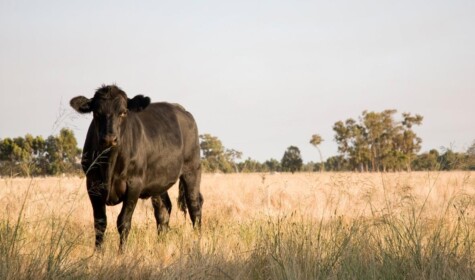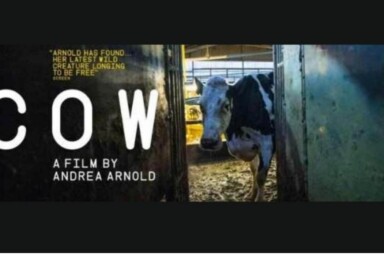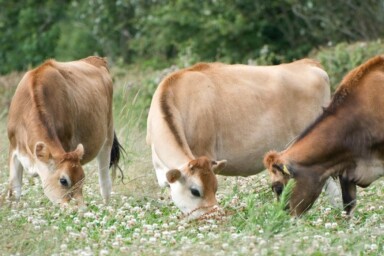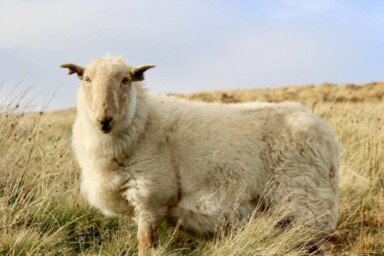Rosamund Young, author of The Secret Life of Cows, reflects on Nicolette Hahn Niman’s book, which has just been revised and updated.
Nicolette Hahn Niman’s compelling argument for the value of ruminants and their integral relationship with land and soil, laid out in Defending Beef: The Case for Sustainable Food Production upends much of the thinking around whether or not we should be eating meat. Niman asserts the value of cattle, especially on lands that are not suited to growing food and she recognises the important role that red meat has in terms of nutrition and soil health, not to mention their power to sequester carbon.
The one thing you can trust cows to do is to eat the right things. Give them a whole supermarket of choice and, providing you haven’t bribed them – and therefore quite literally spoiled them – they will choose to eat what they were meant to eat and in so doing, they will be guaranteeing that the meat and milk they produce is beneficial to human beings.
And vice versa: confine any animal and force it to eat something physiologically unnatural to it, like grain, and the resulting animal ‘products’ will be lacking in quality.
You might well expect me to say that; I am a beef and sheep famer.
Nicolette Hahn Niman is a cattle rancher.
What unites us both far more than those facts, is a quite desperate longing to know; it is the pursuit of truth, no less.
Defending Beef goes a very long way towards helping the reader navigate the overwhelming number of assertions, assumptions, facts, falsehoods, prejudices and fears that are currently worrying millions of people all over the world in relation to what they eat.
It is painfully obvious that governments will not take sufficiently drastic action to slow, let alone reverse global warming and thus individuals have to be able to work out what they can do that will actually make a difference. Defending Beef offers clarity for individuals wanting to make such changes.
In her book, Hahn Niman explains how she believed for thirty years that being a vegetarian was the right thing to do. While working as an environmental lawyer, she met her husband, a cattle rancher, and her eventual intimate knowledge of intensive and extensive farming systems, ability to gather and present vast oceans of statistics, her pursuit of truth with clear, unbiased eyes led her to realise that desisting from eating meat had not actually achieved anything.
To say that this book is timely would be an understatement. We all need such a wealth of information to have any chance of making good decisions about our own health and the future of the planet. It is not just a matter of opinion or personal preference: facts are the tools we need. But humans – complicated humans – need more than facts, and the powerful vein of wisdom that runs through the entire text constantly refers back to those intangible necessities: a sense of belonging, being in harmony with the natural world, seeing and, crucially, doing things first hand. This helps us understanding the cycles that support life: food, air, love, true well-being, peace.
Anyone wishing to cherry pick data to reinforce their own beliefs could find ammunition in this book. The reader is presented with details of the problems associated with keeping food animals as well as the benefits. Nothing is simply all right or all wrong – Hahn Niman addresses the nuances on both sides of the beef discussion.
It’s not enough to read the reviews – everyone should read the whole book. But, keep in mind what the Los Angeles Times said:
‘Hahn Niman is not trying to change your mind; she’s trying to save your world.’







